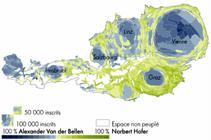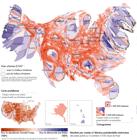Abstract
The myth of Babel (Genesis 11, Old Testament) is an early and pure example of using urbanity and globality as an evidence of hubris. The accurate analysis of this short text shows that rejection of urbanity is not the effect of a vague metaphor; rather, it is based on the observation that city-making represents the perfect expression of humanity’s capability for carrying out modest yet ambitious autonomous plans. The statement that urbanisation and the cooperation of all humans would be a sin is less easy to maintain today, but fresher libertarian or neonaturalist ideologies, replacing transcendence by immanence, have emerged and achieved a historical continuity with mainstream religious demands. Reluctance towards a possible emancipation through self-organised spatial arrangements continues to connect urban agency to a more general anti-societal and anti-human stance.
Babel; urbanity; transcendence; immanence; libertarian; neonaturalist

 Thumbnail
Thumbnail
 Thumbnail
Thumbnail
 Thumbnail
Thumbnail
 Thumbnail
Thumbnail
 Thumbnail
Thumbnail
 Thumbnail
Thumbnail

 Differentiated cartogram (population).Source:
Differentiated cartogram (population).Source:  Cartogram (population).Source:
Cartogram (population).Source:  Differentiated cartogram (population).Source:
Differentiated cartogram (population).Source:  Differentiated cartogram (population) and Euclidean maps.Source:
Differentiated cartogram (population) and Euclidean maps.Source:  Source:
Source: